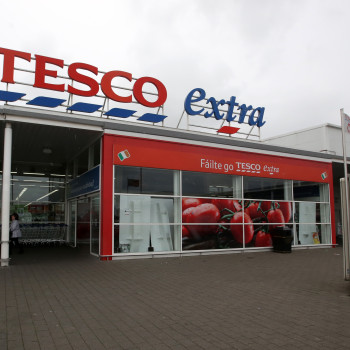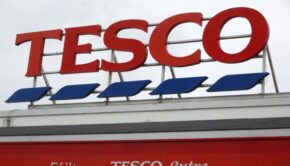Need for grocery regulation stronger than ever

While shedding light on significant profit overstatement in Tesco Ireland’s operations, Dan White wonders when much-needed grocery regulation will come into being here?
19 May 2015
The ongoing turmoil at Tesco has shed new light on the sometimes vexed issue of payments by suppliers to retailers. Tesco’s latest results show that it has had to adjust the profits of its Irish arm by £63m due to its accounting treatment of such payments and that the problem seems to be much worse in Ireland than in its core UK business.
“Drastic” Dave Lewis was drafted in from consumer goods giant Unilever to head up Tesco last September. The gravity of the crisis facing Britain and Ireland’s largest retailer was demonstrated by the fact that he was the first outsider to be appointed Tesco chief executive since its foundation in 1919.
Since then we have been fed a steady diet of bad news by Mr Lewis. First Tesco revealed that it had overstated its previous profits by £250m – a matter that is now being investigated by the UK’s Serious Fraud Office. Then the company shocked analysts by announcing that trading profits for the year to the end of February 2015 would be just £1.4bn – down 58% on the previous year. As if this wasn’t bad enough Tesco then scrapped its final dividend, closed its final salary pension scheme and shut 43 loss-making UK stores.
Worst news until last
However, Mr Lewis kept the worst news until last. Tesco published its full-year results on 22 April. While he would not be the first new boss to engage in a bit of “kitchen sinking” in his maiden set of results, the numbers were still terrible with Tesco writing down the value of its property assets by £4.7bn to record a massive pre-tax loss of £6.4bn – the largest loss ever recorded by a British retailer and one of the largest in British corporate history.
Tesco’s Irish operations haven’t been immune from the meltdown. Sales at Tesco Ireland fell by 6.3% to €2.56bn last year. Tesco’s market share in Ireland has fallen from 28.2% in March 2012 to just 24.7% in March 2015 and it has now been knocked off the top spot in the grocery market for the first time in decades by Musgrave’s SuperValu franchise.
Problems spread to Ireland
It would also appear that some of the problems identified by Mr Lewis’ in Tesco’s UK business have spread to Ireland.
The vast bulk of the profit overstatement at Tesco seems to have involved its treatment of payments received from suppliers. Tesco had already set aside £145m in its half-year results to deal with this matter. This provision was raised to £208m, i.e. an increase of £63m, in the full-year results. While the results statement doesn’t say so explicitly, it would appear that most if not all of this increase came from Tesco’s Irish operations.
When asked, a Tesco Ireland spokesperson replied that: “The additional amount [£63m] related to income in the Irish business”.
Irish suppliers to Tesco, and the other large food retailers, have long complained privately about the payments demanded by the retailers to stock and promote their products. The latest results statement gives the first indication of the extent of these payments. It also seems to show that payments from suppliers to Tesco Ireland are far higher than those demanded by its UK parent.
While the original £145m profit overstatement caused by supplier payments, which was revealed last September, represented just 0.33% of Tesco’s UK sales, the latest £63m adjustment is the equivalent of 3.1% of Tesco’s Irish sales. In other words, the Irish profit adjustment was proportionately more than nine times greater than in the UK.
Regulation of the grocery sector
These revelations will increase the pressure on Jobs and Enterprise Minister Richard Bruton to approve the draft regulations for the grocery sector. The 2014 Competition and Consumer Protection Act gave the Minister for Jobs and Enterprise the power to introduce statutory regulations governing the grocery sector. A draft set of regulations was published last December and the consultation period expired on 27 February.
The draft regulations impose tough restrictions on the multiples’ dealings with their suppliers including an obligation for retailers to conduct their relationships with suppliers “in good faith and in a fair, open and transparent manner”.
More specifically retailers must pay their suppliers within 30 days and can’t unilaterally tear up or alter a contract with a supplier. The regulations severely restrict retailers’ ability to force suppliers to purchase goods and services from companies making payments to the retailer and any payments from retailers to suppliers to help fund promotions must be “based on an objective and reasonable estimate of the cost of the promotion”.
The Irish profit adjustment was proportionately more than nine times greater than in the UK
What’s the delay with grocery regulation here?
So why, more than two months after the end of the consultation period, have the regulations not been signed into law by the Minister? What is the reason for the delay? Is there a previously unforeseen legal problem with the draft regulations? If so what is this legal problem? Have one or more of the big grocery retailers lodged serious objections to the draft regulations? If so what are these objections and which retailers have raised these objections?
This is not a new problem. So-called “hello money” paid by suppliers was legally banned in this country as far back as 1987 – a ban that most retailers were, perfectly legally, able to sidestep. Nor is the problem unique to Ireland. In most developed countries grocery retailing is dominated by a handful of players. This leaves suppliers potentially very vulnerable as there are only a handful of purchasers for their products, what economists call a monopsony.
While the Nestlés, Unilevers, Coca-Colas and Procter & Gambles of this world with their heavily-advertised megabrands are big enough to look after themselves, smaller suppliers enjoy no such protection.
In the UK the Groceries Adjudicator has been put in place to police retailers’ dealings with their suppliers. If or when Richard Bruton bestirs himself to sign the Irish Draft Groceries Regulations, that role will be performed in this country by the Competition and Consumer Protection Commission.
Now that the Tesco revelations have finally given us some concrete numbers, it is clear that the need for the regulation of retailers’ dealings with their suppliers is even greater than we had previously thought. Mr Bruton should either sign the Groceries Regulations into law immediately or provide us with a convincing explanation of why he hasn’t done so.



 Print
Print




Fans 0
Followers